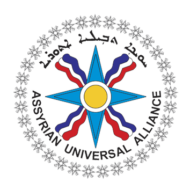Intervention on:“Building Peace after Conflicts”
It is a great pleasure to share some of my views on the issue of “Building peace after conflicts” with my parliamentarian colleagues.
1. The root causes of many conflicts in the world are poverty, exclusion and marginalization, foreign interventions and military excursions and occupation. Unfortunately, in many instances international community, especially the United Nations, in addressing the maintenance of international peace and security has failed to take into account these causes. The sobering reality is the influence exercised by some members of the UN Security Council that have made the decisions of the Council, if not exacerbating the conflicts, contributing to their prolongation, with severe impacts on peace and stability which also hindered the way for the promotion of sustainable development and economic prosperity.
2. I would like to underline that UN efforts in this regard should be provided from the outset with necessary political support, full and optimal human, financial and logistical resources, and clearly defined and achievable mandates. We deeply believe that use of force should not be used as a substitute for those efforts addressing the root causes of conflicts, which the latter should be dealt with in a coherent, well-planned, coordinated and comprehensive manner channelized in respective social, economic and developmental bodies. Therefore, we would like to highlight the importance of maintaining a balanced and inclusive approach in United Nations relevant efforts, initiatives and activities.
3. The Islamic Republic of Iran emphasizes the importance of preventing all efforts designed to build peace in countries and regions emerging from conflicts should never turn to peace enforcement operations. We are of the view that the use of force in any situations must be very limited, must be applied in accordance with the provisions of UN Charter and international law, and serve to the benefit of people of respective region. We reiterate that Protection of Civilians is the primary responsibility of the Host Country and that the successful conduct of the task relating to the protection of civilians, where a United Nations mandate exist, requires a holistic approach encompassing the provisions of timely and adequate resources, logistical support and the required training, as well as well defined and achievable mandates. We emphasize that Protection of Civilian should not be used as a pretext for military intervention by the United Nations in conflicts.
4. Since the war between Iran and Iraq, starting in 1980, the Assyrians living in the Middle East have been the target of terrorist attacks, church bombings, massacres, forced displacement, discrimination, cultural genocide, looting of archeological treasures and other forms of abuse and human rights violations.
In the heart of the Assyrian ancestral land, the Arabization policies of Saddam Hussein’s regime targeted Assyrians in Iraq, attempting to either suppress their true identity or force them to flee their ancestral lands, where they have lived since time immemorial. As a result, countless Assyrian families fled this vicious attack, leaving their homes, lands, communities and, most importantly, their ancestral lands.
As a result of the two wars in Iraq in 1991 and 2003, more than half of the remaining Assyrian population in Iraq has succumbed to a refugee status in neighboring countries or is displaced internally. The economic, political and human rights of Assyrians in Iraq have been utterly shattered as a result.
We are witnessing the same scenario unfold in Syria, where Assyrians comprise 12-15% of the population. As the turmoil in this once-peaceful country continues, the fundamentalist militia groups target our communities and force our people out.
The so-called democratic governments, international human rights organizations and the UN have chosen to be oblivious, closing their eyes to this human tragedy that has befallen a distinct group of the world community. Meanwhile, Assyrian villages and towns which were once vibrant communities in the Middle East have been emptied of their legal owners, and this most ancient people driven out of their lands in full view of an international community that professes support for Human Rights.
5. The Constitution of the Islamic Republic of Iran has allocated one whole chapter (Chapter III) to the rights of the people and citizens (Articles 19-42). The Constitution guarantees the equal rights of all citizens before the law as Article 19 stipulates that “All Iranians, whatever the ethnic group or tribe to which they belong, enjoy equal rights; and color, race, language, and the like, do not create any privilege.” and Article 20 expressly states that “All Iranian citizens, both men and women, equally enjoy the protection of the law and enjoy all human, political, economic, social, and cultural rights, in conformity with Islamic criteria.”
Thank you very much.
Yonathan Betkolia

